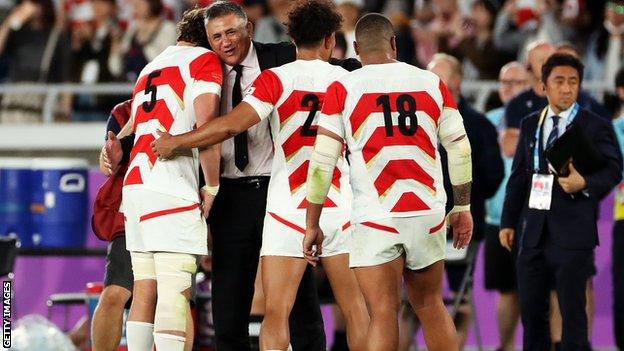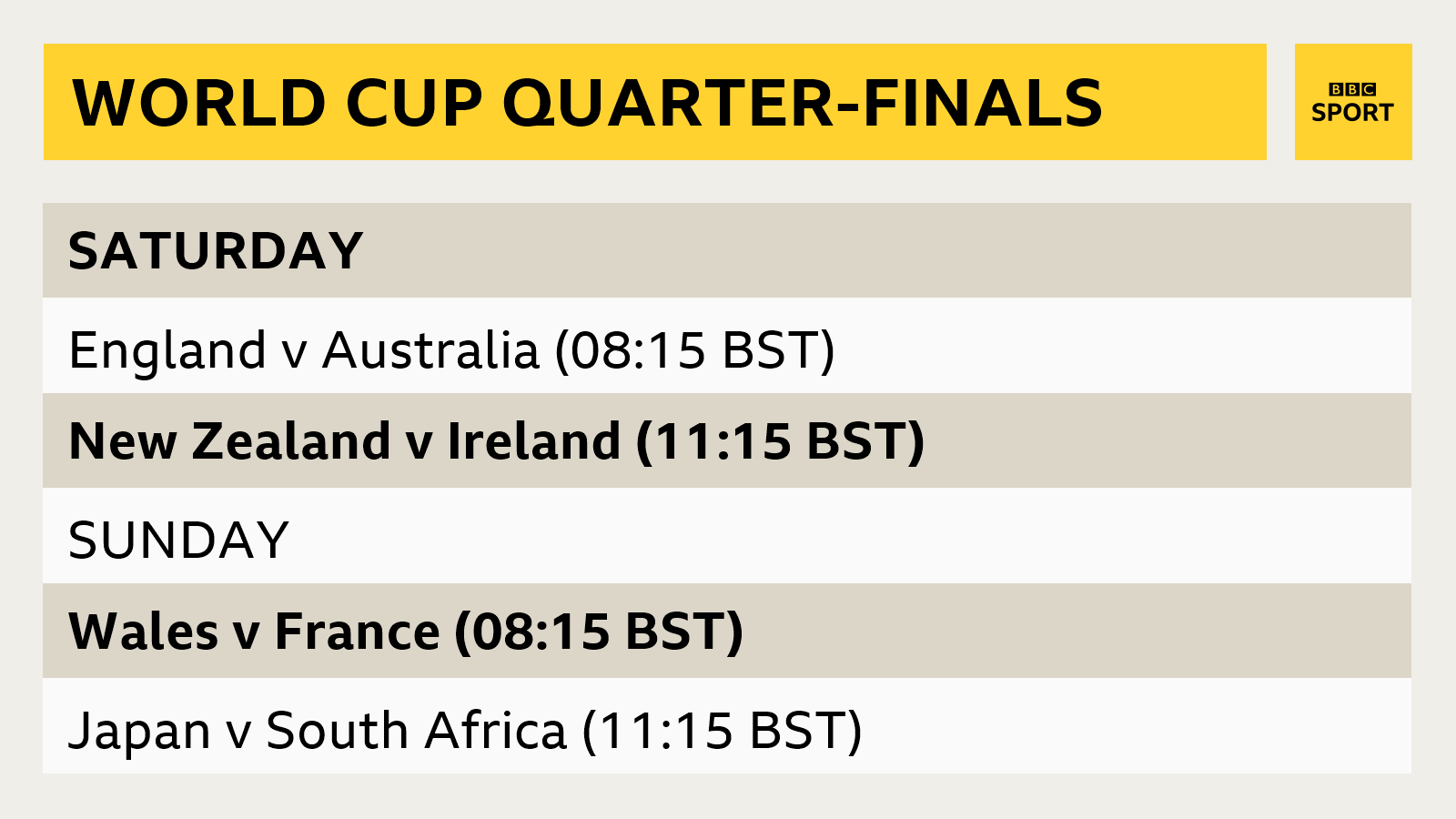Japan coach Jamie Joseph pays tribute to those affected by Typhoon Hagibis
- Published

Japan coach Jamie Joseph congratulates his players after beating Scotland
Japan coach Jamie Joseph paid tribute to those affected by Typhoon Hagibis after his side beat Scotland to reach their first World Cup quarter-final.
The hosts overcame the Scots 28-21 to top Pool A in Yokohama, but Joseph said "some people would not be celebrating" the win after at least 23 people died.
"I really want to acknowledge the families that have lost people in the typhoon," he said.
"That really motivated our players and they wanted to play for them today."
The Brave Blossoms face South Africa in the last eight, and Joseph insists his side have "more belief" now, despite famously beating the Springboks in England four years ago.
"You can just look around and see how special a moment this is for our team and for this country," he added.
"I think the world has always respected Japan, but Japan have not always trusted themselves.
"Tonight we went up another level and they gave everything they possibly could. Everyone gave 150% and that is what it takes to win Test matches.
"The more we win, the more that belief will grow."
Those comments were echoed by talismanic flanker Michael Leitch, who said his side would "give everything" against South Africa.
"It's a tough time at the moment with the typhoon," he said.
"Everyone who is suffering with the typhoon, this game was all for you guys. The crowd was massive for us, and today was more than just a game.
"It was nothing about skill, it was all about emotion and physicality, and we showed that today."
Scotland led through Finn Russell's try, but Kotaro Matsushima, Keita Inagaki and Kenki Fukuoka all crossed before half-time.
Japan wing Fukuoka added another after the break to guarantee his side a bonus point and the hosts were able to hold out despite late Scotland scores from Willem Nel and Zander Fagerson.
"This is great for Japanese rugby, for rugby in Asia and for tier-two rugby," added Leitch.
"First we have qualified for the quarter-finals and now we are shuffling the goalposts. The biggest reason is belief, that is the trigger.
"Since 2011, the opponents we have played have been stronger and stronger. We have played more tier-one nations and played in Super Rugby."

Analysis
BBC Scotland's chief sports writer Tom English
The big question for World Rugby is: what do you do with Japan? For the next four years, are they going to go back to playing at a level well beneath them? Or are you going to find them a place in the Six Nations or Rugby Championship?
That's the only way they're going to build on what they have now, which is incredible - packed stadium, multi-million viewers watching this game, a country in thrall to rugby. If you're going to let that disappear, then that would be a crying shame, and actually an affront to Japanese rugby.
Japanese rugby writer Oliver Trenchard, on BBC Radio 5 Live
Anything is possible in the quarter-final. We saw the weight of expectation get to them in the first game with Russia, but you feel that has been lifted off their shoulders. Certainly against Ireland, and in the first half against Scotland, they played some free-flowing rugby. It's a knockout competition now so who knows what could happen.
BBC Rugby Union correspondent Chris Jones
It is absolutely huge. This World Cup has come to Japan to grow rugby in Asia. We saw the start of that four years ago, especially with what happened when Japan beat South Africa, and now we have seen that fulfilled.